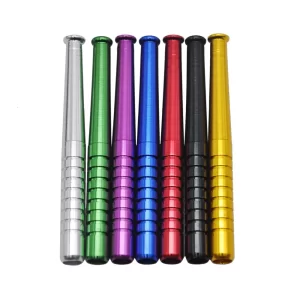On August 25, the nonprofit group Smart Approaches to Marijuana (SAM) sent a letter to President Donald Trump, calling on him not to approve a pending proposal to reclassify cannabis under federal law. In the letter, SAM warned the president that rescheduling marijuana under the federal Controlled Substances Act would lead to significant adverse outcomes.
“Not only does marijuana not belong in Schedule III, but rescheduling will result in serious harm to public health and safety,” SAM and about three dozen organizations that cosigned the letter maintained.
With much fanfare, SAM also issued a press release about the letter, sharing it on social media. The group also tagged me in a post about the release on the platform X, which puzzled me a bit. I don’t see SAM as a credible source of information about cannabis, and haven’t cited them in my work in at least five years, if ever.
My first impression was to add a comment to the X post saying the group didn’t need to tag me, because I wasn’t likely to share their views. But then I decided to write a bit more than that, and started looking deeper. It didn’t take long to confirm my suspicions and conclude that policymakers and the public shouldn’t trust SAM for credible information about marijuana and cannabis policy.
SAM’s Influence on Policy
Whether or not people listen to SAM is a crucial consideration, as the organization has influence, including the ability to capture the attention of lawmakers and journalists. Kevin Sabet, president and CEO of the group, served as a drug policy advisor to three presidential administrations from both major parties. Journalists and national news organizations frequently quote him, and he has the ear of lawmakers on both sides of the aisle. In September, Marijuana Moment reported that the federal government’s Substance Abuse and Mental Health Service Administration (SAMHSA) invited Sabet to speak at a webinar that included topics such as the “potential negative impacts of state legalization.”
Smart Approaches to Marijuana claims to “support removing criminal penalties for low-level use,” according to communications director Derrick Robinson. But the group’s actions, including its opposition to rescheduling cannabis, suggest a commitment to maintaining the status quo of cannabis criminalization. More importantly, the group seems to have no qualms about relying on misinformation, half-truths, and debunked science to support its anti-legalization positions.
Among the reasons included in SAM’s letter to Trump for maintaining marijuana’s current Schedule I classification under the CSA is an assertion that “International drug cartels, already operating thousands of marijuana farms across the country—many licensed at the state level—would also qualify for tax breaks.” The letter also cites a source for the claim, namely, a 2023 Wall Street Journal article about illegal pot farms operated by Chinese nationals and naturalized U.S. citizens of Chinese origin in Maine.
But here’s the rub. The article specifically says that state and local officials reported that the cannabis cultivation sites in question were “unlicensed.” When pressed for clarification, SAM was unable to provide evidence that any international drug cartels had been licensed to cultivate cannabis in the U.S. The group apparently fabricated that inflammatory detail, as it’s not mentioned in the source the group cites. Nonetheless, SAM included the fabrication in its letter to the President of the United States.
Should People Trust Smart Approaches to Marijuana?
SAM’s looseness with the truth inspired me to talk to people whose views on cannabis I find credible. Among the first I reached out to was Adam Smith, executive director of the Marijuana Policy Project. He had also witnessed SAM’s eagerness to share the letter to the president and, like me, thought the claim that rescheduling cannabis would benefit drug cartels was dubious, at best.
I asked Smith if he believed policymakers and the public should take what SAM says at face value. He dismissed the group’s input, saying that as cannabis policy reform becomes increasingly inevitable—either via legalization of marijuana or the regulation of hemp-derived cannabinoids—SAM seems desperate to stay relevant.
“I feel like SAM is making their last gasp effort to turn the tide back, but they can’t do it honestly,” Smith tells me in a telephone interview. “So they have to do it with misinformation and disinformation and [by] trying to mislead legislators all over the country.”
Journalist Just Says No to SAM
I also reached out to a fellow writer to gauge his views on SAM. Jeremy Berke, the founder of Cultivated Media and a former cannabis reporter for Business Insider, said that the public and policymakers should have a balanced view of cannabis.
“There is absolutely room for credible pushback to cannabis legalization, to cannabis companies,” Berke says in a phone interview, adding, “These are for-profit enterprises who have an incentive to sell more of an intoxicating substance.”
“There are some negatives associated with legalization.” Berke acknowledges. “I believe on balance, legalization is right. It’s a good thing to do. I’m a consumer of the product. But there are negatives, and I think the industry, advocates, and policymakers should be clear-eyed about what those are.”
But like me, Berke does not believe that SAM should be relied upon to provide unbiased information on cannabis policy reform.
SAM is “absolutely not the credible pushback needed to drive the policy conversation in a good direction. I think they are deliberate about the disinformation that they pump out on social media about the effects of legalization,” says Berke. “They take vaguely racist or one-off crime statistics and conflate that with an uptick in crime. Meanwhile, these are not really statistical correlations that have any bearing on reality. And so, I think they should not have a place at all in this debate or in the public sphere.”
Paul Armentano, deputy director of the National Organization, would also like to see policymakers and the public reject Smart Approaches to Marijuana as a trusted source of information about cannabis policy.
“Smart Approaches to Marijuana is an advocacy organization. They have a clear bias, and they present data that is either supportive of their bias or they cherry-pick data to try to imply that the evidence is supportive of their bias,” Armentano says in an interview. “But they’re not honest brokers in this discussion. They are a special interest group, so they ought to be treated as such. And I fear that oftentimes policymakers, reporters, editors, and others treat them as if they are an unbiased source, as opposed to a special interest group with a clear-cut agenda that is willing to bend the facts in their favor when necessary to support that agenda.”
SAM Claims That Cannabis Lowers IQ
As an example, Armentano points to an often-repeated claim from SAM that “high-potency marijuana is linked to lower IQ,” which the group reiterated as recently as last year.
“He’s basing that statement on a more than decade-old paper by Madeline Meier,” Armentano says, referring to Sabet. “That paper was refuted within months in the very journal that published it. Additional studies have come out with better methodology, looking at the same issue, that have not been able to affirm those findings.”
“Madeleine Meier herself has done follow-up work that hasn’t been able to substantiate those findings,” Armentano continues. “Nonetheless, Kevin insists on continuing to put out that talking point, knowing full well that the information that has come to light since then refuting that talking point. But he doesn’t stop using the talking point. I think that’s unethical and it’s dishonest.”
When I asked Robinson for the evidence that shows that cannabis lowers IQ, he referred me to the Meier study, just as Armentano predicted. In fact, Robinson characterized the evidence as incontrovertible, writing, “There is not a debate on this issue in the scientific literature.”
But when I shared Armentano’s evidence that the initial study’s conclusion had been questioned, Robinson shut down the conversation. He was also unwilling or unable to provide any evidence that international cartels had been licensed to cultivate cannabis, despite the group making the claim less than a month earlier.
“You’re gonna have to do your own research,” Robinson replied. “I’m not writing this piece for you.”
Further attempts at clarification and a request for an interview with Sabet were ignored.
Armentano adds that despite assertions from SAM that it supports decriminalization, the group’s opposition to legal commercial cannabis operations only leaves room for unlicensed operators–including the international cartels it fearmongers about–to supply a market that history shows is intent on obtaining cannabis.
“The policies they advocate for are perpetuating arresting and putting people in jail, whether they’re opposing rescheduling, whether they’re opposing state legalization initiatives that would only legalize personal possession, like in the District of Columbia and like in North Dakota a few years ago,” says Armentano. “They opposed all of it.”
Where Does SAM’s Money Come From?
The motivations behind Smart Approaches to Marijuana’s views on cannabis policy are also called into question by its refusal to identify significant sources of its considerable funding. A federally required financial disclosure for the 2023 tax year listed nearly $3.4 million in revenue and showed SAM sitting on a nest egg of more than $9 million in net assets at the end of the year. However, the group is mum on the sources of its funding.
While denying rumors that SAM receives funding from the pharmaceutical or private prison industries, the SAM website’s “Where Does Our Funding Come From” page claims, “We aim to be as transparent as possible,” and “See below for our SAM 990 from 2015 and 2016,” but there is no link to this (outdated) information. Communications director Robinson also declined to identify the group’s top 10 contributors for 2024.
Whatever the source of the group’s resources, SAM’s fundraising gives its leadership a tidy financial incentive to maintain its crusade against cannabis policy reform. Sabet received more than $90,000 in total compensation in 2023, according to that year’s financial disclosure, while three other executives, including Robinson, received more than $100,000.
Some might argue that their lucrative financial arrangements with SAM give its executives a significant incentive to maintain their opposition to pragmatic cannabis policy reform, including the establishment of a regulated market for adult-use marijuana. Such reforms, however, are the only way to provide people with an alternative to illicit suppliers, including the cartels that SAM is so eager to warn us about.
Photo by Ana Johen Carrillo Olea on Unsplash




























